Top 6 Phishing Scams of the Week: Netflix, Walmart, COVID-19, Microsoft Support, Trust Wallet, & MetaMask
Phishing scams have been one of the scammers’ favorite weapons for a long time. While impersonating famous brands, they send out fake text messages and emails containing phishing links with the aim of enticing you into opening them with promises of prizes or discounts.
Most commonly, the phishing links lead to online survey pages that state you can claim a gift by completing an online questionnaire. After you fill out the survey, you are prompted to enter credentials, such as credit card numbers, before your “gift” can be delivered. In other instances, the links lead to fake log-in pages that seem to belong to various brands. These pages require you to submit log-in credentials to check a package’s delivery status, change your account settings, or whatever other task the scammers have asked you to complete.
The scammers’ ultimate goal is to steal your personal information — they’ll record everything you enter on these fake pages and use it to commit cybercrimes: e.g., hack into your bank account, withdraw money, or steal your identity. Don’t let them!
This week we’ve found 6 phishing scams to watch out for, including Netflix, Walmart, COVID-19, IT Support, Trust Wallet, and MetaMask. Would you be able to spot all the scams?
1. Netflix Membership SMS Phishing
Netflix phishing text message scams reoccur every year, and now there is a new version – with scammers falsely claiming that you have to click on the attached link to continue using Netflix:
- Netflix: Please update your membership with us to continue watching. <URL>
As mentioned, the link will take you to a fake online survey page where you are asked to submit personal data:

Then you have to fill out an online survey, which says that those who complete it will receive rewards like 4K OLED TVs or iPhone 12 Pros. In the end, of course, you are prompted to submit personal credentials. Don’t fall for it!

Browse the web safely with Trend Micro ScamCheck (it’s free!)
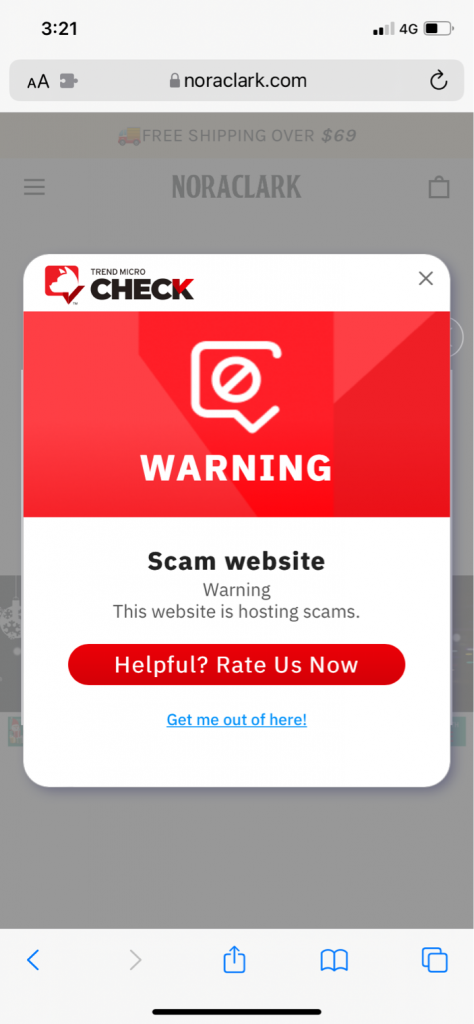
ScamCheck is an all-in-one browser extension for detecting scams, phishing attacks, malware, and dangerous links – and it’s FREE!
After you’ve pinned ScamCheck, it will block dangerous sites automatically! It is now available on Safari, Google Chrome, and Microsoft Edge.
Check out this page for more information on ScamCheck.
2. COVID-19 Self-Test Kit SMS Phishing
As Omicron continues to spread, people are panicking more and more about the pandemic. That’s why scammers keep using this fear to try to hook you in – with phishing messages claiming that you need to get your rapid self-test kit:
- hxxps://www[.]ihealthlabs-us[.]com/products/us-ihealth-covid-19-antigen-rapid-test-2-tests-per-pack?fbclid=iwar3efiukypxjgqzkd1atwashfra3giyp-pkwdixiqtir5tvg0njoqqycn6i
The link will take you to a phishing website where you have to submit personal credentials and also credit card details for the delivery of the self-test kit. Don’t get scammed!
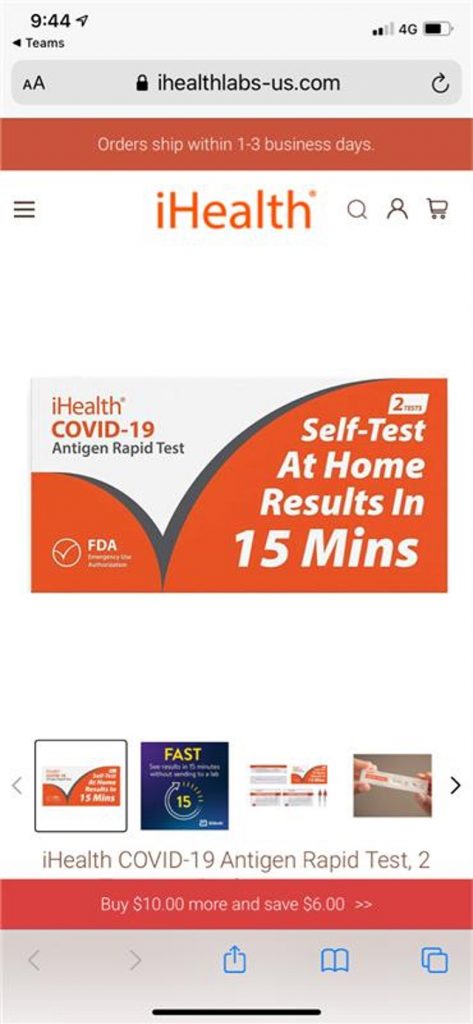
3. Walmart Survey Phishing
Walmart is one of the most impersonated brands in 2021 – we’ve reported on Walmart phishing text messages and emails so many times we’ve lost count! This week, we spotted even more phishing attempts:
- Laura, I’m ecstatic! 2021 has been good to me and so I’m sharing some of what I got with you. You’re gonna love THIS>> <URL>
The phishing link in question will take you to a Walmart online survey page:
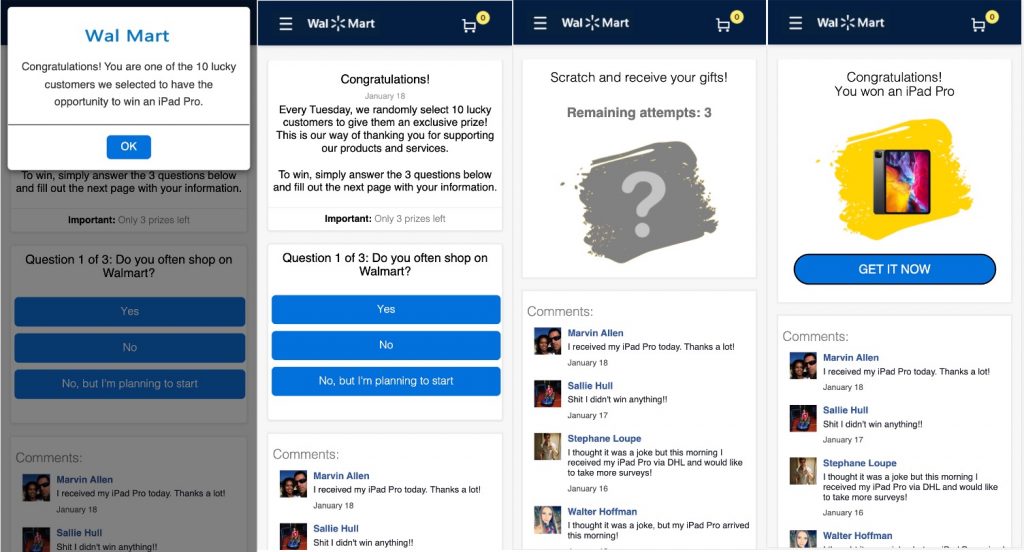
Again, you could end up exposing your credit card information and other personal details – don’t get duped!
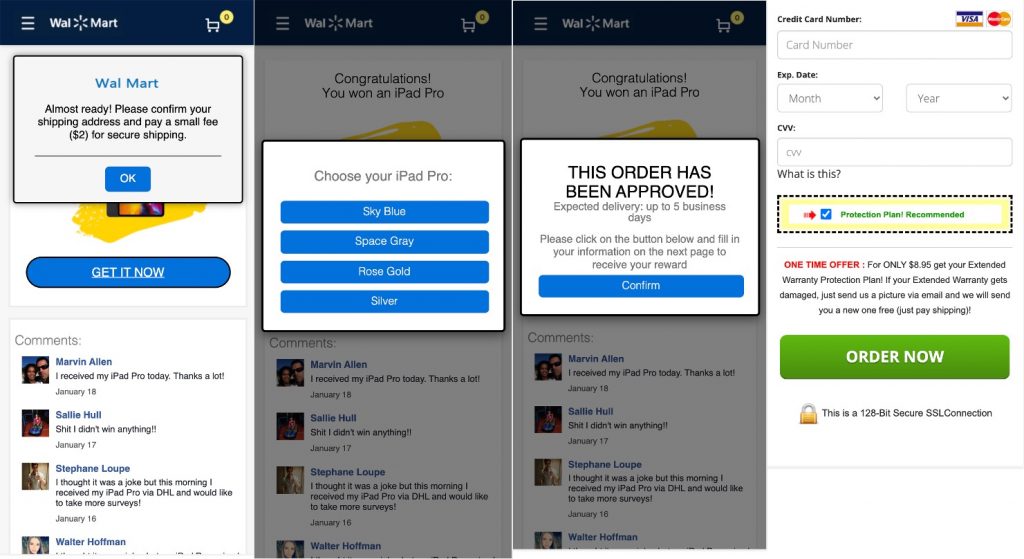
4. Walmart Exclusive Reward Email Scam
Besides text messages, scammers also use emails to exploit Walmart customers – by telling them they can get exclusive offers via the attached phishing links:
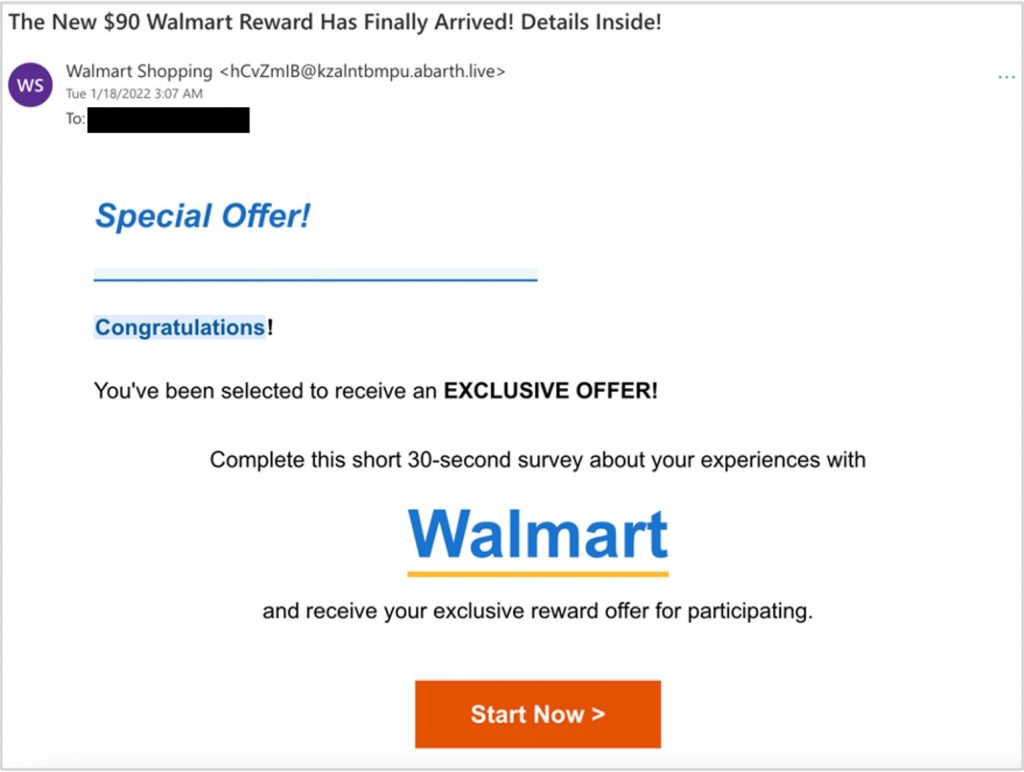
You know what will happen next – don’t fall for it!
5. IT Support Email Phishing (Google / Microsoft / Yahoo)
Have you received an email from Microsoft mentioning something about an account update? Or one from “IT Support” that says there are security issues with your account? Be careful of tech support phishing scams!
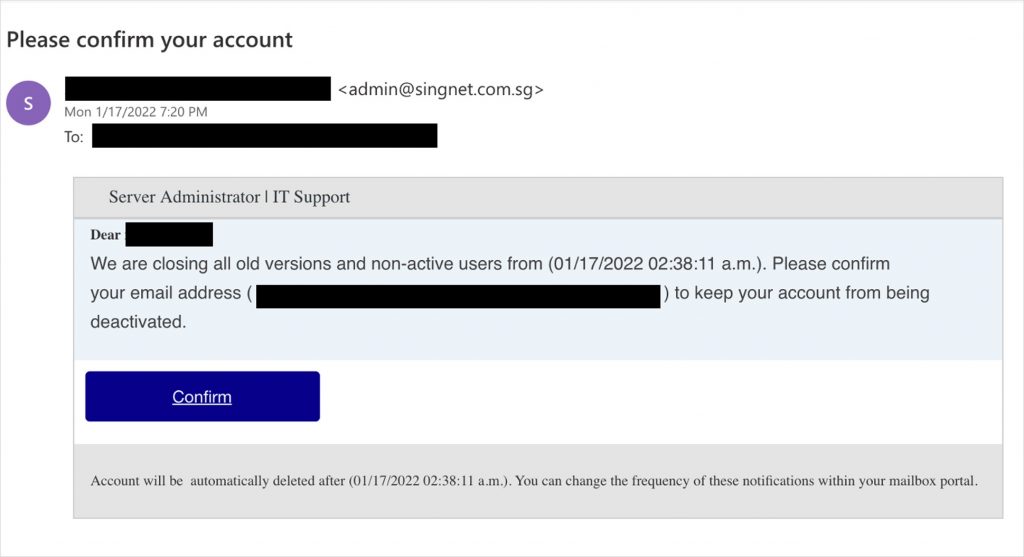
Scammers instruct you to click on the embedded button to “keep your account from being deactivated”. The link leads to fake login pages imitating those of different organizations/online services, including Google, Microsoft, Yahoo, and more:
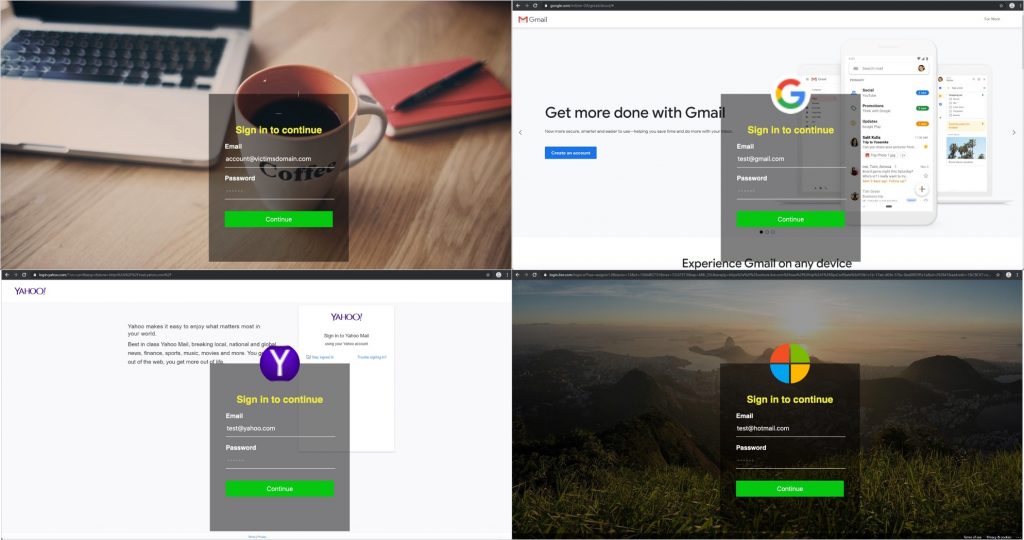
Again, the login credentials you submit on these phishing websites will end up in the scammers’ hands. Beware!
6. Crypto Wallet Verification Email Phishing
We’ve reported on fake crypto wallet apps recently, but there are also thousands of fake emails from cryptocurrency wallet companies as well. Scammers pose as Trust Wallet, MetaMask, and other brands, falsely claiming that your wallet is going to be suspended for some security issue and that you have to click on the embedded button or link to verify your account.
Here are some examples:
#1 Trust Wallet
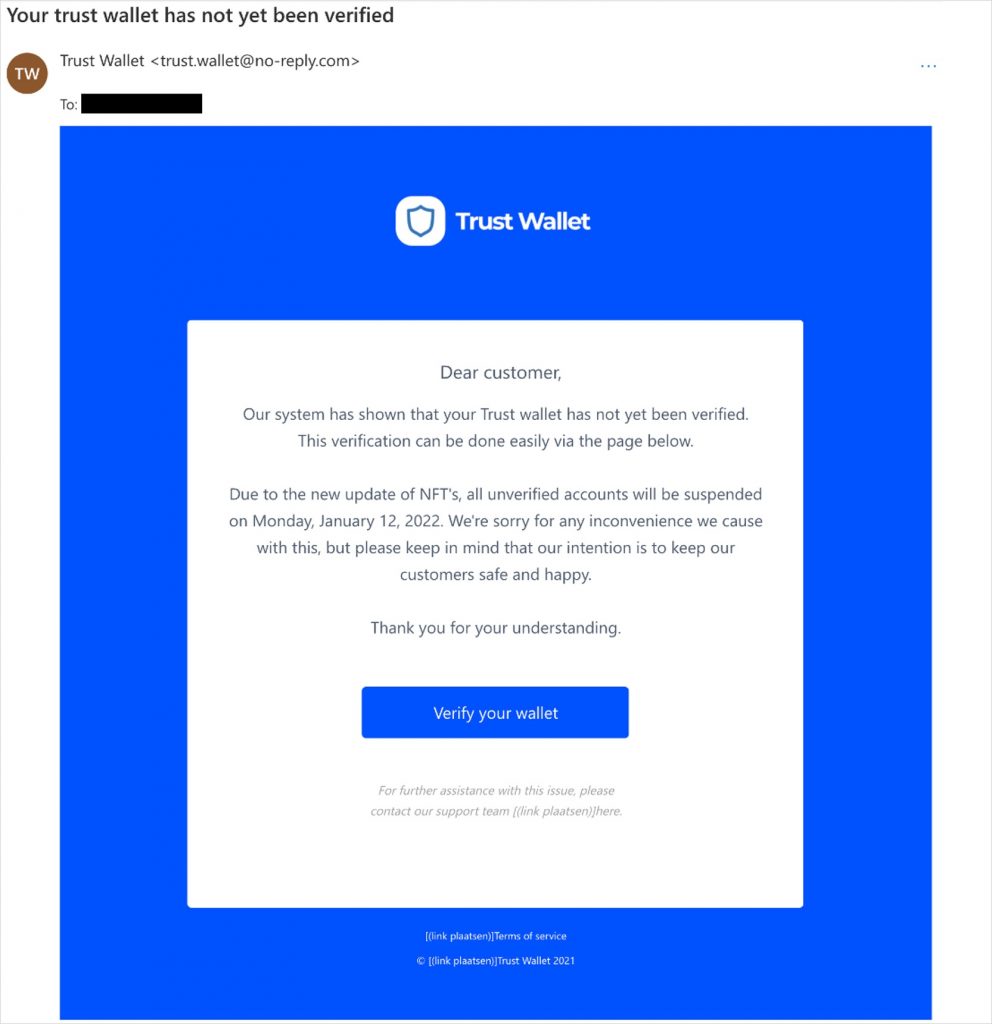
#2 MetaMask
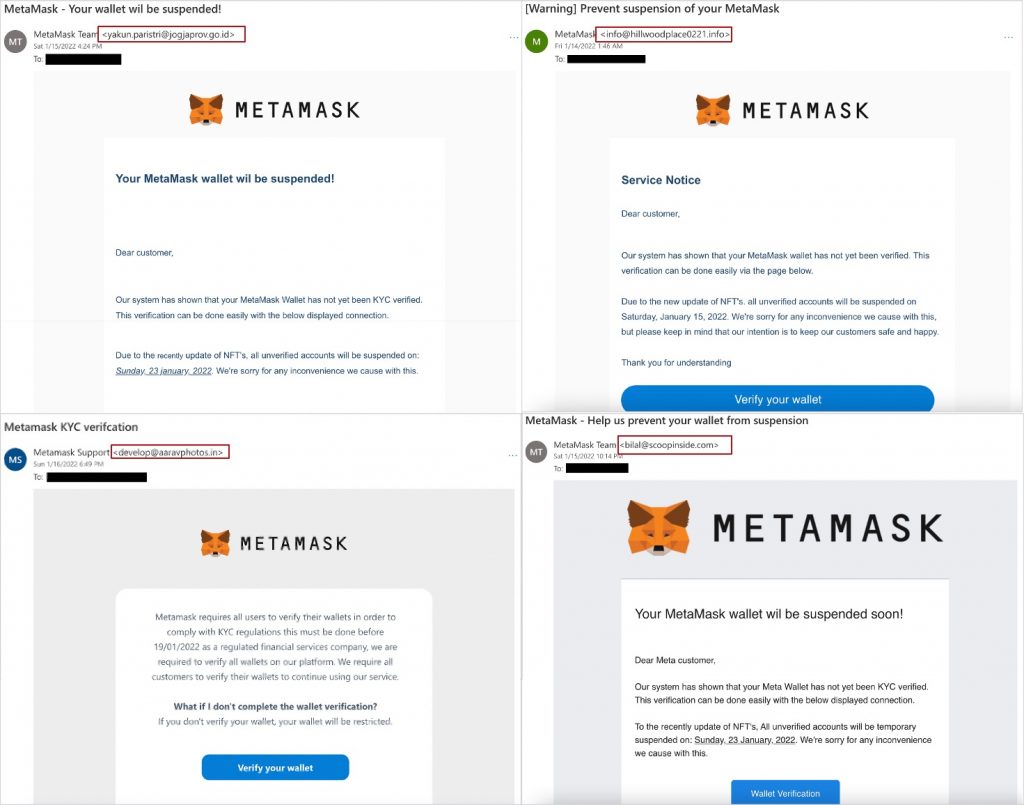
#3 Generic Crypto Wallet
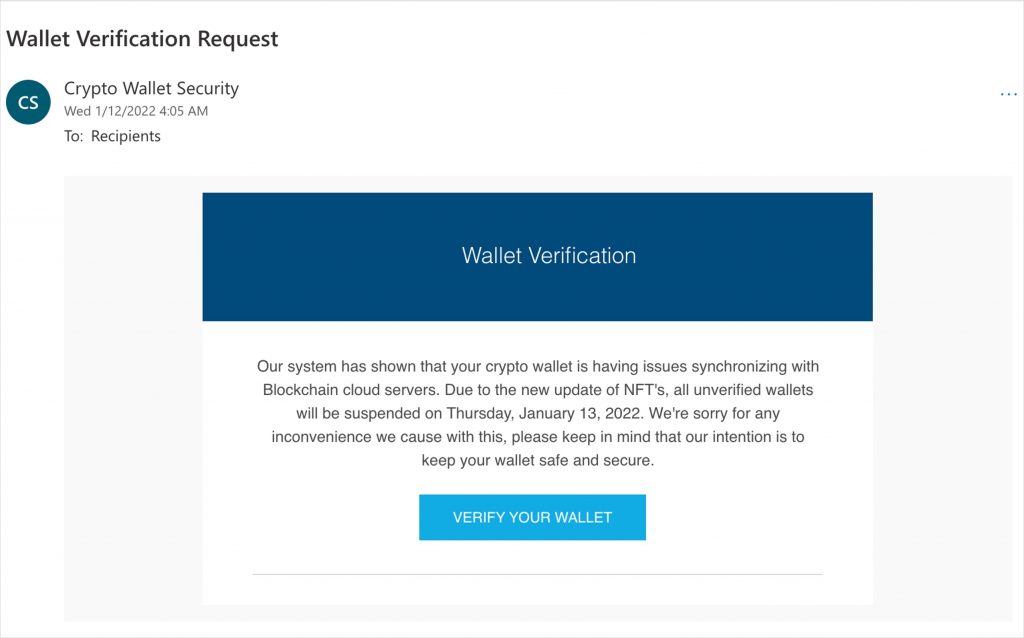
These buttons will take you to fake websites where scammers try to lure you into giving away your recovery phrase and other wallet credentials. If you give this information away, the hackers can then hack into your crypto wallet and transfer every “bit” away. What’s worse, since cryptocurrencies are decentralized, it would be nearly impossible to get them back! Watch out!
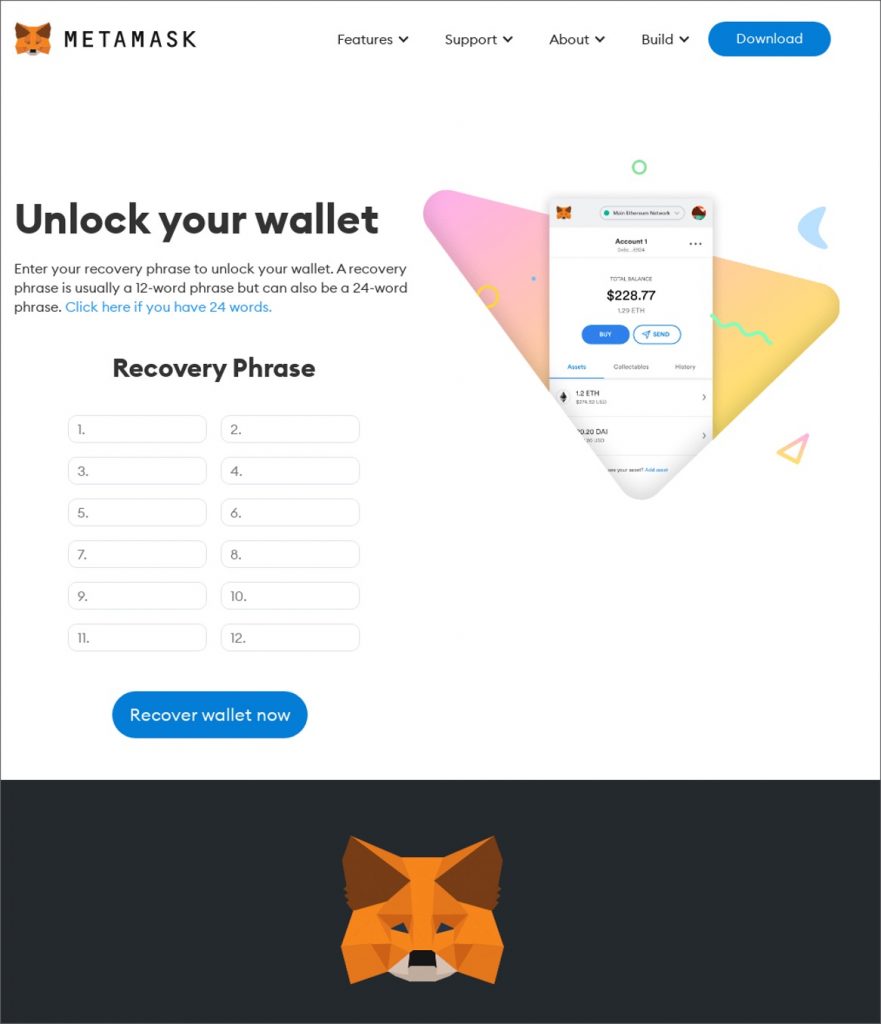
How to Protect Yourself
- Double-check the sender’s mobile number/email address.
- Free gifts or prizes are always a major red flag.
- Always go to the official website/application instead of using links from unknown sources.
- Use Trend Micro ScamCheck to surf the web safely (it’s free!)
- Add an extra layer of protection to your device with Trend Micro Maximum Security. Its Web Threat Protection, Ransomware Protection, Anti-phishing, and Anti-spam Protection can help you combat scams and cyberattacks. Click the button below to give it a try:
As ever, if you’ve found this article an interesting and/or helpful read, please do SHARE with friends and family to help keep the online community secure and protected.
